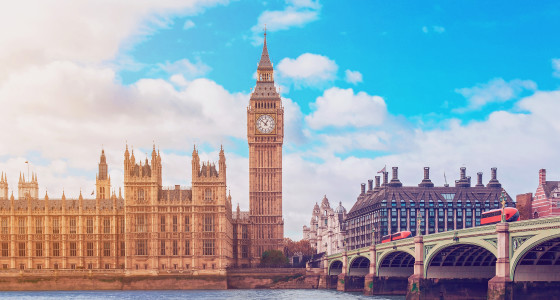
As the Government’s Autumn Statement approaches, PensionBee shares its thoughts on suspected changes to pension policy in order of their potential impact on savers.
More detail on investment of pensions in UK-based businesses
The Government has recently closed a consultation as part of its Pension Investment Review, seeking views on how to potentially use pension funds to invest more in the UK economy.
Becky O’Connor, Director of Public Affairs at PensionBee, commented: “Given the amount of work that’s already gone into this developing plan, it seems highly likely the Chancellor will elaborate on next steps in the upcoming Budget.
It’s important to note that higher investment returns from UK assets are not proven. If they were, then greater allocation to these investments would naturally occur.
PensionBee research found that a third of savers believe pension schemes should only be obliged to invest in UK assets if these investments lead to proven performance gains.
A requirement to invest a certain percentage would instantly set a level playing field and create a market, albeit one that might result in compromised outcomes to savers.
In order to overcome this, there needs to be a protective backstop from the Government to ensure that providers following mandates or incentives do not fail scheme members, should the investments underpinning their funds not perform as hoped.
An announcement on the introduction of the automatic enrolment extension changes
An update is due on the introduction of the extension of automatic enrolment, to include reducing the age of auto enrolment from 22 to and removing the lower level of qualifying earnings.
Becky O’Connor, Director of Public Affairs at PensionBee, commented: “Legislation enabling the extension of automatic enrolment was passed a year ago, however we await the introduction of the key measures that would help to boost people’s pension pots.
A follow-up announcement on this is due and it could make sense for the Government to mention it in the upcoming Budget alongside any updates on the Pension Investment Review, to give reassurance that savers’ retirement outcomes are being prioritised and to provide employers with clarity for planning purposes.”
Putting a cap on tax-free cash
Becky O’Connor, Director of Public Affairs at PensionBee, commented: “Despite the _corporation_tax tax-free lump sum on pension withdrawals being widely recognised as one of the most popular pension benefits, there is speculation the Chancellor may reduce this, or cap the amount.
The _bereavement_standard_monthly,000 cap that has been rumoured would be a low threshold, and would mean that anyone with a total pension of £400,000 or more (roughly the amount that someone with a ‘moderate’ living standard in retirement would need) would be impacted. So a cut of this magnitude would negatively affect millions of middle income retirees, and would cause those on the cusp of retirement significant difficulty with decision-making.
Less dramatic alternatives might include changing the percentage from _corporation_tax to say, _basic_rate, or making a smaller change to the current lump sum allowance maximum of _lump_sum_allowance, which has been fixed at the same level despite the lifetime allowance being abolished and so now seems quite arbitrary.”
Changes to tax relief on pension contributions
Becky O’Connor, Director of Public Affairs at PensionBee, commented: “The introduction of a 3_personal_allowance_rate flat rate of tax relief on pension contributions has long been rumoured and it’s now time to grab the bull by its horns. A flat rate could create a simpler, more uniform approach to pension tax relief, offering a significant advantage to millions of basic rate and non taxpayers - notably lower income earners (the younger and women) - by encouraging them and enabling them to accumulate greater pension wealth with an extra Government top-up every time they contributed into their pension.
While higher and additional rate taxpayers would receive less in pension tax relief compared to what they receive under the current system, pension contribution tax advantages in general remain generous compared to those available in other savings vehicles.
A simpler approach to tax relief could eliminate the need for complex self-assessment tax rebates for higher and additional rate taxpayers, a process many forget or are unaware of. In addition, more of the tax relief would go directly into their pensions rather than their bank accounts, making the process more straightforward, potentially more lucrative and ensuring all pension savers equally benefit from the available relief.”
Pensions being subject to inheritance tax
Becky O’Connor, Director of Public Affairs at PensionBee, commented: “Bringing defined contribution pensions into someone’s estate for inheritance tax purposes would remove a key advantage that pensions have over other forms of long-term investment for those who are focused on tax efficiency.
Income tax is already due on pension income for those who pass away after the age of 75, so making pensions liable for inheritance tax too could start to make them less attractive from a planning point of view and potentially dissuade people from saving into them.
Our own research indicates that this change wouldn’t be very popular amongst savers, with 51% expressing that they plan to, or already have moved money into their pension to reduce the size of their estate. Instead, a significant proportion of savers (6_personal_allowance_rate) stated that they’d prefer if inheritance tax was scrapped altogether.”
Removing National Insurance relief on pension contributions
Becky O’Connor, Director of Public Affairs at PensionBee, commented: “While currently both employers and employees benefit from not having to pay National Insurance on pension contributions, it’s possible that this relief may be targeted by the Chancellor.
Altering the way National Insurance is levied on pension contributions may raise revenue, but it could have the negative consequence of making employers less generous in their pension offers to employees.”
Reducing the Annual Allowance
Becky O’Connor, Director of Public Affairs at PensionBee, commented: “The Annual Allowance increase to _annual_allowance gave people the opportunity to benefit to an even greater extent from the tax advantages of paying into a pension, providing a clear incentive to use pensions, especially in respect of events like receiving an inheritance or other large boosts to income.
Unravelling beneficial tax incentives such as the higher Annual Allowance would neither be helpful to savers, nor much of a revenue raiser for the Government, as the majority of people do not come close to even the former maximum amount each year.”
Re-introducing the Lifetime Allowance
Becky O’Connor, Director of Public Affairs at PensionBee, commented: “The uncertainty surrounding this decision can make it challenging for pension savers to plan ahead. Individuals approaching retirement age might feel compelled to withdraw any savings exceeding the previous limit to avoid potential tax penalties.
Those close to breaching the previous allowance threshold and several years off from retirement, could consider a prudent approach may be to wait and assess the impact of any policy changes. It is unlikely that any reforms would be implemented immediately, so affected savers may not need to rush into making a decision.”











